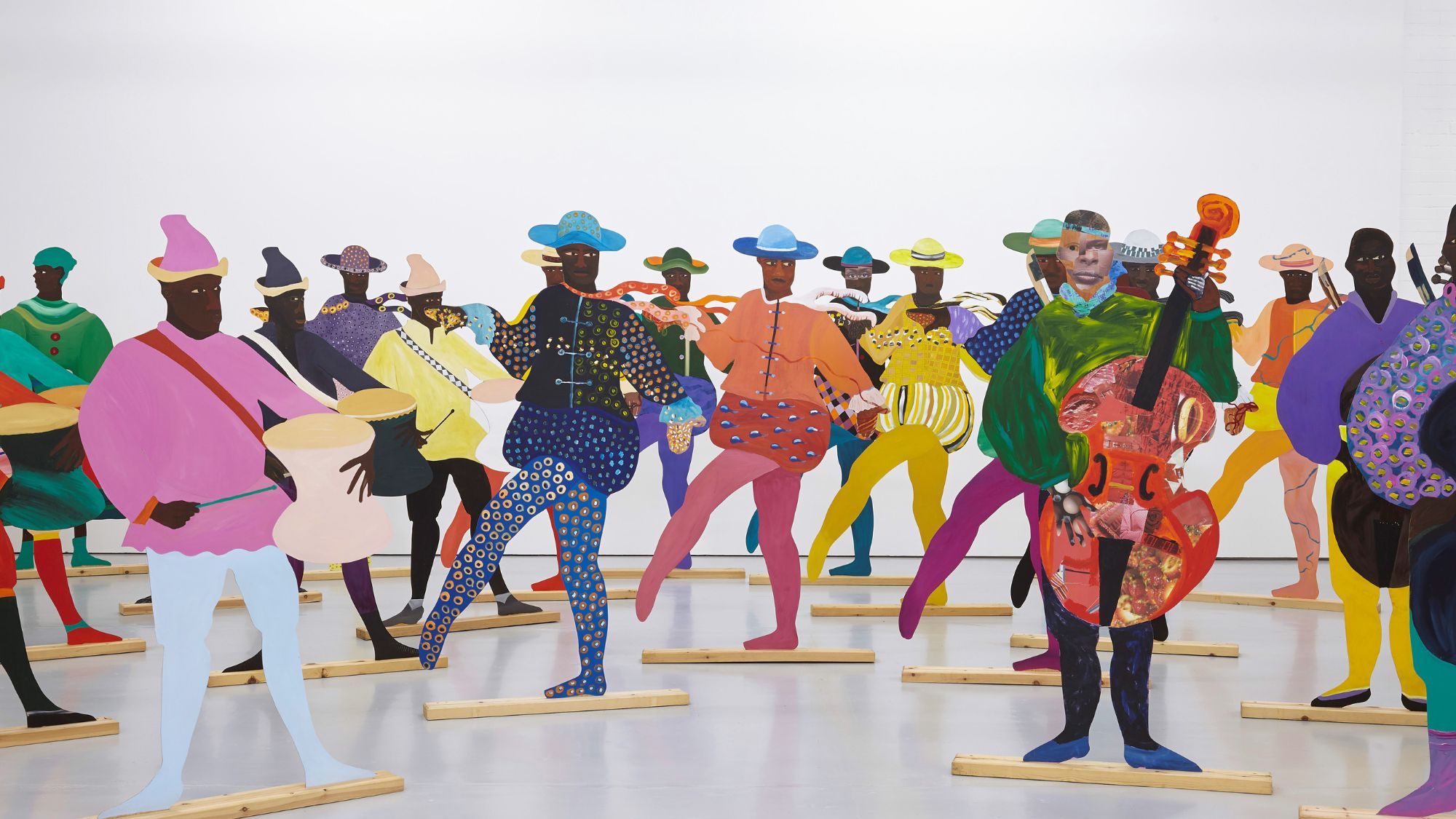Entangled Pasts: Art, Colonialism and Change review – an 'ambitious' and 'well meaning' exhibition
The exhibition examines works of the African diaspora and historic links to colonialism

A free daily email with the biggest news stories of the day – and the best features from TheWeek.com
You are now subscribed
Your newsletter sign-up was successful
Since the "furious" Black Lives Matter protests in 2020, "just about every cultural institution in Britain" has made some attempt to address questions of racial injustice, said Mark Hudson in The Independent. The Royal Academy is no exception. Since 2021, the 256-year-old institution has been researching its own "links to colonialism and the transatlantic slave trade", exploring the ways in which these horrors touched upon, or enriched, its members – which is to say, "most of the great British artists of the past 200 years". Three years on, the RA is presenting the findings of this process in the form of a major new exhibition.
The show's objectives are twofold. Firstly, it explores the links to slavery and colonialism of past academicians, from founder Joshua Reynolds (himself an abolitionist) onwards. Secondly, it puts these images in dialogue with the works of African diaspora artists. The show is "ambitious" and "well-meaning". The quality of the works is "near uniformly" high, from 18th century works by Reynolds and Johan Zoffany, to John Akomfrah's three-screen installation Vertigo Sea (2015), "surely one of the great cinematic evocations of the ocean". But I left "not quite sure what I should be feeling".
There are some "unforgettable" works here, said Alastair Sooke in The Daily Telegraph. Most come courtesy of contemporary artists. Frank Bowling, the first black member of the Royal Academy, is represented by Middle Passage (1970), a "spectacular" abstract painting resembling "a vast, red-and-gold view of the inferno". Elsewhere, Hew Locke's Armada (2017-19) consists of a "motley flotilla" of model boats, suspended from the ceiling "like a ghost fleet". Yet curatorially, the show is "a mess: meandering, full of waffle, occasionally even boring". Wall texts are "dense and hard to follow", and displays are padded out with acres of "dull" archival materials. Worthy as its aims are, this exhibition feels like a case of too little, too late.
The Week
Escape your echo chamber. Get the facts behind the news, plus analysis from multiple perspectives.

Sign up for The Week's Free Newsletters
From our morning news briefing to a weekly Good News Newsletter, get the best of The Week delivered directly to your inbox.
From our morning news briefing to a weekly Good News Newsletter, get the best of The Week delivered directly to your inbox.
Not so, said Laura Cumming in The Observer. This is "the most dramatic, enthralling and radical" exhibition in the RA's history. The historical art shocks judiciously. In William Mulready's 1863 painting The Toy-seller, the titular subject, a black man, glances at "a whiny little white child too frightened to look at him". Elsewhere, we see Lubaina Himid's Naming the Money (2004): lifesize cutouts of "enslaved Africans forced to work as dog trainers, dancers, toy-makers and ceramicists". Pay attention to this show, and the art will pose a challenge to history: "Who ignored the humanity, and the identity, of all these long-lost people?" It's not all historical "breast-beating", though, said Laura Gascoigne in The Spectator. The art here is excellent: nuanced, sometimes "riotous", sometimes "vertigo-inducing". It's "about colonialism, but also about change". "I confess that I was rather dreading this show." I was wrong.
Royal Academy, London W1 (020-7300 8090, royalacademy.org.uk). Until 28 April
Sign up to The Week's Arts & Life newsletter for reviews and recommendations
A free daily email with the biggest news stories of the day – and the best features from TheWeek.com
-
 The ‘ravenous’ demand for Cornish minerals
The ‘ravenous’ demand for Cornish mineralsUnder the Radar Growing need for critical minerals to power tech has intensified ‘appetite’ for lithium, which could be a ‘huge boon’ for local economy
-
 Why are election experts taking Trump’s midterm threats seriously?
Why are election experts taking Trump’s midterm threats seriously?IN THE SPOTLIGHT As the president muses about polling place deployments and a centralized electoral system aimed at one-party control, lawmakers are taking this administration at its word
-
 ‘Restaurateurs have become millionaires’
‘Restaurateurs have become millionaires’Instant Opinion Opinion, comment and editorials of the day
-
 Kia EV4: a ‘terrifically comfy’ electric car
Kia EV4: a ‘terrifically comfy’ electric carThe Week Recommends The family-friendly vehicle has ‘plush seats’ and generous space
-
 Bonfire of the Murdochs: an ‘utterly gripping’ book
Bonfire of the Murdochs: an ‘utterly gripping’ bookThe Week Recommends Gabriel Sherman examines Rupert Murdoch’s ‘war of succession’ over his media empire
-
 Gwen John: Strange Beauties – a ‘superb’ retrospective
Gwen John: Strange Beauties – a ‘superb’ retrospectiveThe Week Recommends ‘Daunting’ show at the National Museum Cardiff plunges viewers into the Welsh artist’s ‘spiritual, austere existence’
-
 Travel for all: 6 of the world’s most accessible destinations
Travel for all: 6 of the world’s most accessible destinationsThe Week Recommends Experience all of Berlin, Singapore and Sydney
-
 Bad Bunny’s Super Bowl: A win for unity
Bad Bunny’s Super Bowl: A win for unityFeature The global superstar's halftime show was a celebration for everyone to enjoy
-
 Book reviews: ‘Bonfire of the Murdochs’ and ‘The Typewriter and the Guillotine’
Book reviews: ‘Bonfire of the Murdochs’ and ‘The Typewriter and the Guillotine’Feature New insights into the Murdoch family’s turmoil and a renowned journalist’s time in pre-World War II Paris
-
 The 8 best TV shows of the 1960s
The 8 best TV shows of the 1960sThe Week Recommends The standout shows of this decade take viewers from outer space to the Wild West
-
 The year’s ‘it’ vegetable is a versatile, economical wonder
The year’s ‘it’ vegetable is a versatile, economical wonderthe week recommends How to think about thinking about cabbage